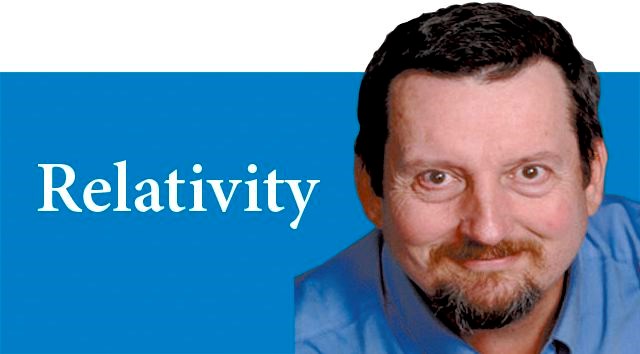Commercial products and advertising have a very strange relationship with chemical compounds.
On the one hand, there is Maple Leaf foods and their infamous spelling bee. This series of commercials and online advertisements featured various school-aged children in a spelling bee setting, attempting the names of various chemical compounds. The take-home message was "If you can't spell it, you won't find it in our food."
At the other extreme is Oil of Olay Moisturizing Cream promising fewer wrinkles and a youthful glow via hyaluronic acid and Vitamin B3 or Vitamin C. For years, their advertising has been built around these chemicals and their benefits for beautiful skin. "Better living (or looking) through chemistry" would appear to be their theme.
These are only two advertising campaigns out of many. Lara Bars with their all-natural ingredients - none of those nasty chemicals.
CLR with its capacity to remove lime scale and rust but with chemicals safe for the environment. Lysol with its disinfectants capable of killing 99.9 per cent of bacteria.
Chemistry pervades much of the advertising we see.
In the late 1950s, the term chemophobia was coined to describe a fear or anxiety exceeding normal proportions about the presence and/or use of chemical compounds. The use of the term in publications and books peaked in the early 1990s. (Not surprisingly, it seems no one has ever bothered to use the term chemophilia - a love of chemical compounds.)
Chemophobia is often irrational and frequently based on either a misunderstanding or misinterpretation of the science. For example, there have been various attempts to ban 'dihydrogen monoxide' not realizing this is a molecule with two hydrogens and one oxygen, more commonly referred to as water. And yes, water is a chemical compound. Nothing to fear here normally.
For the most part, advertising is relatively innocuous. But one area where there is a great deal of concern amongst practicing chemists and others is in the food industry. In particular, in the use of natural and synthetic as a method of distinguishing chemicals. Natural carries connotations of healthy and beneficial.
Synthetic is quite the opposite.
Yet nothing could be further from the truth.
Any chemical - natural or otherwise - can be toxic. It is not the origins of the compound but the dosage which matters.
This is encapsulated in a saying attributed to Paracelsus: "All things are poison, and nothing is without poison, the dosage alone makes it so a thing is not a poison" or "the dose makes the poison."
While water is essential for life, excess water can actually kill. I am not talking about drowning, but fatal water consumption. As an example, in 2005, a U.S. college fraternity forced pledges to drink up to five gallons of water in four hours.
The winner actually drank six gallons in less than four hours, but then died. Two others became comatose but managed to survive the ordeal.
There wasn't anything in the water. It was just water. But as the body becomes waterlogged the concentration of sodium ions inside cells plummets while osmotic pressure forces cells to swell and burst. The brain swells and eventually it is no longer able to function leading to a shutdown of the autonomic nervous system and death.
Should we be afraid of water? No. It is not harmful when used appropriately. Indeed, three days without water is enough to kill the average person. I should add when I say water I am talking about all liquids such as coffee, milk, pop, juice, etc. Most are over 90 per cent water and with regard to water consumption, there really isn't a lot of difference between drinking a glass of water and one of these other liquids other than caffeine being a diuretic.
In any case, natural does not necessarily equate to safe. Nor does synthetic equate to deadly. Many synthetic compounds - from honey to beer to Vitamin C - are perfectly fine. Admittedly, honey is synthesized by bees so most consumers would think of it as natural, but without bees doing their thing, honey wouldn't exist. Is there really a difference between a food produced by bees and one produced by humans?
Recently, I heard an expert on CBC rail against processed foods. His contention was that processed food contained no food content. He pointed out processed foods have no nutrients and this is why they are leading to obesity.
The interview caused me to groan.
Nutrients are chemicals we consume and use in our body. If processed foods contain no nutrients, then how could they be linked to obesity? If they are not rich in the nutrients our bodies would simply pass them through. We wouldn't be getting an overdose of nutrients, which our body then stores as fat resulting in obesity.
Perhaps chemophobia is more harmful than chemicals to our health.



